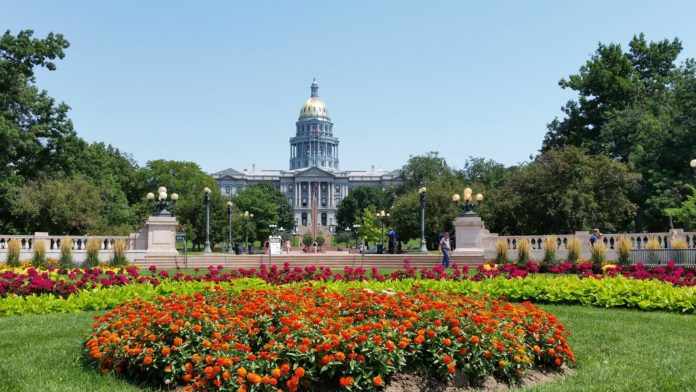Late August into September is certainly the doldrums when it comes to legislative activity. Kids return to school and work schedules become more predictable, but the only breeze to stir our sails seems to be from political speeches. Particularly in this post-redistricting election year, campaign promises are more general than usual and even the interim committees fail to stir the winds of controversy. Nevertheless, there are a few ripples that may rock the boat should they become legislative recommendations.
Authorized in previous legislative sessions with members appointed, several task forces are quietly at work to re-shape processes for how the State permits new industries, constructs and heats new buildings, and raises tax revenue. Although these groups meet publicly (mostly by Zoom) the general public is largely unaware of their activities; thus, CMA is highlighting this information to bring them to the attention of our members.
A broad and far-reaching Environmental Justice Task Force has met for more than a year pursuant to HB 21-1266 to formulate recommendations on achieving equity for disproportionally impacted communities who bear the burden of environmental pollution from industrial activities and transportation projects. The EJ Task Force is currently accepting public comment on Draft 3 of its recommendations which could tell the legislature to require denial of permits for new industries that might increase air or water pollution above a pre-determined level in impacted communities. Based upon draft recommendations, community members could be not only encouraged to participate in permitting decisions (as are all members of the public) but provided financial incentives to participate. Other participation incentives could include transportation to meetings and childcare during meetings. Depending on the final recommendations and the legislature’s receptivity, this could become an expensive program for Colorado taxpayers.
Speaking of taxpayers, a Task Force operating under the umbrella of the Oversight Committee on Tax Policy is exploring whether to tax not only personal property purchased by Colorado residents, but personal and professional services as well. Of course, a major question that looms is whether such a proposal must go to a vote of the people under provisions of the Taxpayer Bill of Rights (TABOR). The Task Force is also directed to consider applying the state income tax to federal adjusted gross income rather than federal taxable income.
Another Task Force assembled under HB 21-1286 has wrapped up work on recommendations for Building Performance Standards. The purpose of the bill was to achieve a 7% reduction in GHG emissions from the built environment by 2026 and a 20% reduction by 2030 (measured against a 2021 baseline). Owners of commercial, multifamily, and public buildings 50,000 square feet or more must report their energy usage to the state by December 1, 2022. The Task Force’s recommendations, which must be approved by two-thirds of the Task Force members, are due to the CEO Executive Director on or before October 1, 2022. Among the recommendations are that the AQCC encourage building owners to replace fossil fuel space and hot water heating equipment with efficient, electric technology, The Air Quality Control Commission must promulgate regulations on or before June 1, 2023.
The PUC will hold a public comment meeting on September 19 (the first was held in August concerning its draft rules for the clean heat plan. The action is directed by SB 20-264 which mandates gas utilities with 90,000 or more retail customers file plans with the PUC to reduce CO2 and methane emissions 4% by 2025 and 22% by 2030. A key element of the plan as directed by the legislation is to move home heating and appliances from gas to electric, part of the state’s “beneficial electrification” effort. Although the proposed rule does not ban new gas hook-ups, Xcel Energy expressed its concerns about a “de facto” ban in filings to the PUC. And cost remains a concern.
Colorado’s Clean Truck Strategy, which was developed over the past eleven months, will go to rulemaking before the Air Quality Control Commission early in 2023. Focusing on medium and heavy-duty trucks and busses, the effort addresses achieving a zero-emission trucking industry within the state through Electric and Hydrogen fueled vehicles. During the period August 2020 to April 2022, 120 public comments were received. Most notable was a comment letter from Weld County which stated, “Collectively, this Strategy is aspirational, impractical, and unlikely to succeed. Pursuing a no fossil strategy effectively ignores commercially demonstrated and available technologies that can provide emission reductions now…” Both information provided by CDPHE and reiterated during the interim Transportation Legislation Review Committee, off road construction equipment and agricultural equipment will not be included in the rules. Colorado expects $57 million from the feds to assist in expanding EV charging infrastructure and is also exploring hydrogen fueling facilities.
A final thought as to state government activity—as levels in the Colorado River system continue to drop, federal actions and ongoing discussions will no doubt drive legislative recommendations in Colorado. Lower Basin states such as Nevada, Arizona and California face the need to make drastic cuts in water use and potentially redefining key concepts such as “beneficial use” and “waste.” These discussions could influence Colorado, an Upper Basin state that delivers water downstream to those populous areas. Nothing is certain yet, but as the saying goes, “Whiskey is for drinking and water is for fighting.”







